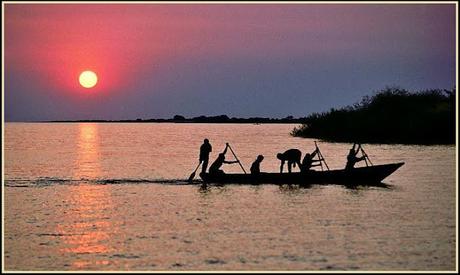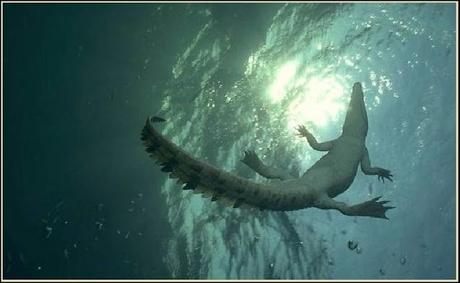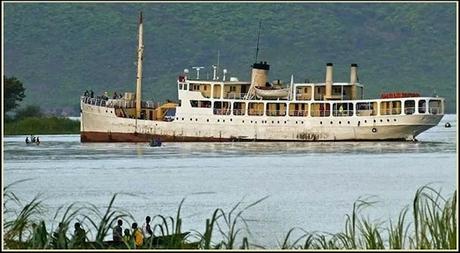The Republic of Tanzania has existed as a sovereign state since 1964 when the recently independent East African countries of Tanganyika (on mainland Africa) and Zanzibar (a large island off its coast) chose to amalgamate - one nation under the equator.
Tanzania boasts a beautiful freshwater lake (L. Tanganyika), an iconic mountain (M. Kilimanjaro), a UNESCO world heritage site in Serengeti National Park, the historic capital city of Dar es Salaam ('House of Peace' ), and with a buoyant economy and 62 million inhabitants (comparable in size with France, Italy and UK), is the most populous country south of the midline - all of which might arguably qualify it to be called the jewel of modern Africa.
But Tanzania is also one of the longest continuously inhabited places on earth, as excavations in the Olduvai Gorge (part of the Great Rift Valley) have yielded hominid remains dating back two million years. Maybe it's why over 100 languages are still spoken in the country. That's quite something to think about. (Pause for thought.)
However it's the lake I'm primarily concerned with today. Tanganyika in Swahili (the de facto national language of Tanzania), simply and fittingly means "sail the wilderness" from tanga (sail) and nyika (wilderness).

the call - sailing the wilderness (on Lake Tanganyika)
I wrote a blog last year about water as the essence of life (linked here in case you'd like to check it out: Essence ). Although it is second in several respects to Lake Baikal in Siberia, second oldest, second largest (by volume) and second deepest, it is actually the longest lake in the world and holds 16% of the planet's fresh water, so its importance in the genesis and sustaining of life on earth should not be underestimated. I think it's no coincidence that Lake Tanganyika is to be found in the area of Africa that has been called "the cradle of civilization".As an eco-system, the lake is home to freshwater crocodiles, hippopotamuses, terrapins and water cobra along with 250 species of cichlid fish. A staggering 98% of these fish are unique to Lake Tanganyika and studies of fossil remains suggest they first evolved in Tanzania approximately 45 million years ago. It is interesting (to me at least) to speculate that life on land as we know it may have emerged not from the sea but onto the sunny shores of the world's longest freshwater lake some 13 million years ago.
It is entirely probable that Tanganyika was fished by early Homo Sapiens during the stone-age as far back as 3 million years, first from the edges with cast nets and later by boat from the surface, once wood-working skills were sufficiently advanced. Fish from the lake still provides 60% of the animal protein in the diet of Tanzanians. Maybe that omega-3 rich diet was a factor in our ancestors' impressive brain-development (and I'm only half-joking.)

the wild - a croc (in Lake Tanganyika)
The lake even saw naval action during the first world war when the British were fighting to gain territory in what until then had been known as German East Africa. (German imperial ambitions had led to them annexing Kenya and Tanganyika in the 1880s.) In the Battle of Lake Tanganyika, two British gunboats, HMS Mimi and HMS Toutou, which had been dispatched from England by sea then rail and road, mounted a surprise attack on the German ships that controlled the lake, used it as a supply route and a base from which to attack the allies. Mimi and Toutou captured the gunboat Kingani and sank the Hedwig, which left only the main craft, Graf Goetzen, and Captain Zimmer chose to scuttle it rather than allow such prize to fall into British hands. By July 1916 Lake Tanganyika was firmly under allied control.The battle was the inspiration for C.S. Forester's novel 'The African Queen ', later made into a film by John Huston starring Humphrey Bogart and Katharine Hepburn.
As a postscript, the scuttled Goetzen was raised from the lake bed in 1924, converted into a passenger ferry and renamed MV Liemba. One hundred years later it is still heroically and somewhat smokily plying the waters of L. Tanganyika, mainly these days as a tourist attraction.

the survivor - MV Liemba (on Lake Tanganyika)
When I re-read my copy of James Joyce's 'Ulysses ' recently, a folded paper with a faded (incomplete) draft of a poem dropped out. I thought I might to try and finish the experimental piece - titled 'Tanganyikan Fling' - although I've no very clear idea what I was thinking at the time. I wrestled with it like some slippery water cobra for a few days, because it had some intriguing lines in it: gumboot diplomacy... five-toed sleuth... dazzled by Zanzibar's dark booty etc. However, it seems to be escaping my clutches, so no poem this week. I fall back on Charles Bukowski's sage advice about forcing the creative process: "You don't try. That's very important."Thanks as ever for reading my stuff, S ;-) Email ThisBlogThis!Share to TwitterShare to Facebook
